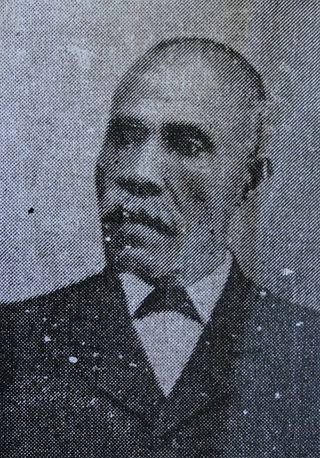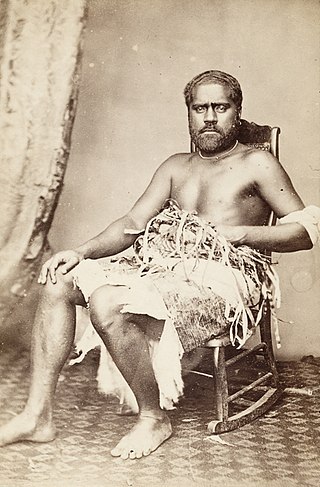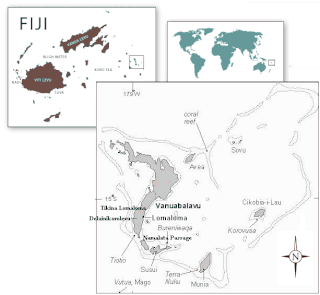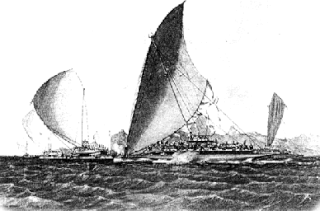| Nobility of Fiji |
|---|
| Titles |
| Institutions |
| Confederacies |
| Rotuman Traditional Leadership |

Kubuna is one of the three confederacies that make up Fiji's House of Chiefs, to which all of Fiji's chiefs belong.
| Nobility of Fiji |
|---|
| Titles |
| Institutions |
| Confederacies |
| Rotuman Traditional Leadership |

Kubuna is one of the three confederacies that make up Fiji's House of Chiefs, to which all of Fiji's chiefs belong.
It consists of the provinces of Tailevu, Naitasiri, Lomaiviti, Ra and parts of the western province of Ba. Most of Kubuna is located in the northern part of Fiji's Central Division.
The capital of the confederacy is the chiefly island of Bau in Tailevu. While Kubuna is foremost the i-cavuti of Bau, the name is also shared by certain provinces or vanua that were her allies or influenced by her in the past, which are now part of the confederacy.
The Paramount Chief of Kubuna, who is generally considered to be the highest-ranked chief in Fiji, is the 'Turaga Bale Na Tui Kaba', Vunivalu of Bau. A position that has been vacant since the death of Ratu Sir George Cakobau, a former Governor General, in 1989. Succession is not necessarily from father to son, although there is a hereditary element. Currently, there are three eligible contenders, namely Ratu George Cakobau, Jr., his brother Ratu Epenisa Cakobau and their cousin Ratu George Kadavulevu Naulivou. It is thought that clan politics is part of the reason why none of these candidates has, of yet, been installed. It is said that the nomination of Ratu George Kadavulevu Naulivou has been disqualified based on the basis that his father was born out of wedlock. Also listed as a possible candidate is Fiji's former President, Ratu Epeli Nailatikau; however he too is considered by some to be disqualified as he is only connected through maternal links being a descendant of Ratu Edward Tuivanuavou Tugi Cakobau, a product of an extra-marital liaison by Cakobau's granddaughter Adi Litia Cakobau with (the then married) King George Tupou II of Tonga.
Another high chief from Kubuna is the Roko Tui Bau, most recently Ratu Joni Madraiwiwi, the former Vice-President of Fiji who died in 2016. According to sources within the Great Council of Chiefs (a traditional body which, among other things, used to function as an electoral college to choose the President and Vice-President), he was chosen for the Vice-Presidency because it was thought that as President Ratu Josefa Iloilo was from the Burebasaga and his predecessor, Ratu Sir Kamisese Mara from Tovata, the new Vice-President should be from Kubuna. On 6 December 2006 he was ousted from office by coup leader Voreqe Bainimarama and the office of Vice-President has been suspended ever since.

RatuSeru Epenisa Cakobau was a Fijian chief, monarch, and warlord (Vunivalu) who united part of Fiji's warring tribes under his leadership, establishing a united Fijian kingdom. He was born on Natauloa, Nairai Island in Lomaiviti but spent his youth on Vanuaso, Gau, Lomaiviti, later returning to Bau to re-establish his Father's Ratu Tanoa Visawaqa reign. Ratu Epenisa Seru Visawaqa was given the name "Cakobau" meaning destroyer of Bau, in reference to his grandfathers' (Nailatikau) effort to first claim the tile from the people of Butoni and Lovoni, returned with most of his warriors from Vanuaso, Gau, Lomaiviti to coup the leadership in Bau then and later takeover his father's title; known after his father as the 6th "Vunivalu" or Warlord of Bau.
Ratu is an Austronesian title used by male Fijians of chiefly rank. An equivalent title, adi, is used by females of chiefly rank. In the Malay language, the title ratu is also the traditional honorific title to refer to the ruling king or queen in Javanese culture. Thus in Java, a royal palace is called "keraton", constructed from the circumfix ke- -an and Ratu, to describe the residence of the ratu.

Ratu Joni Madraiwiwi was a Fijian Ratu and early colonial administrator in what was then the British Crown Colony of Fiji.
The House of Chiefs in Fiji consists of the Fijian nobility, composed of about seventy chiefs of various ranks, majority of which are related. It is not a formal political body and is not the same as the former Great Council of Chiefs, which was a political body with a prescribed constitutional role, although the membership of the two bodies did overlap to a great extent.

Turaga na Vunivalu na Tui Kaba, shortened as Vunivalu, is the Paramount Chief of the Kubuna Confederacy of the island of Bau in Fiji. Loosely translated the title means Warlord of Bau or "Root of War". The succession to the title does not follow primogeniture, but the candidate must be a high-ranking member of the Tui Kaba clan.
There are three confederacies in the Fijian Traditional Government, Kubuna, Tovata and Burebasaga. One of the two Paramount chiefly tribes in the Kubuna Confederacy is the "ToraniBau" the other

Bau is a small island in Fiji, off the east coast of the main island of Viti Levu. Bau rose to prominence in the mid-1800s and became Fiji's dominant power; until its cession to Britain, it has maintained its influence in politics and leadership right through to modern Fiji.

Tailevu is one of the 14 provinces of Fiji. Its capital town is Nausori which lies along the banks of the Rewa River.
Ratu Alifereti Finau was the eleventh Sau ni Vanua of Lau and the fifth Tui Nayau. He was a member of the noble household Matailakeba.
Adi Litiana Maopa (1864-1933) was a prominent member of two of Fiji's main chiefly houses, those of the Tui Nayau, the paramount chief of the Lau Islands, and the chiefly house of the Vunivalu of Bau the paramount chief of the Kubuna Confederacy.

RatuTanoa Visawaqa was a Fijian Chieftain who held the title 5th Vunivalu of Bau. With Adi Savusavu, one of his nine wives, he was the father of Ratu Seru Epenisa Cakobau, who succeeded in unifying Fiji with the help from British missionaries and the crown into forming the contemporary Fiji today.

RatuEpeli Nailatikau I was a Fijian Paramount Chief, who was posthumously made the Vunivalu of Bau.

RatuPopi Epeli Cakobau was a Fijian chief and politician. He held the title of Vunivalu of Bau from 1914 until his death in 1936, and was also a nominated member of the Legislative Council.

Turaga na Rasau is a traditional Fijian chiefly title of the Lau Islands. Prior to Fiji's colonial days, Fiji had many different Vanua with their own Paramount Chieftain which exercised no authority over the other; a saying from the island of Kadavu aptly summarises it "Nomu Turaga o sega na noqu Turaga" or "Your Chief is not my Chief" also the people of Beqa Island were of a similar opinion saying "Qali Cuva Ki Lagi" or "Subject only to heaven" and would bow to no outside Chieftain, but at the turn of the 20th century aspects of the traditional social structure remained, but for administrative purposes three main Matanitu were solidified and formed as they were the dominant consolidated powers at the time being that of Kubuna, Burebasaga and Tovata. With regard to the Rasau while its traditional origins were in Kubuna on Bau the titles traditional authority in modern Fiji is now in Tovata, Lau in particular Lomaloma Tikina on the Island of Vanua Balavu.

The Lasakau Sea Warriors were a 19th-century warrior sub-culture in the pre-colonial state of Bau, in Fiji. The sea warriors were instrumental in spreading Bau's political power throughout the South Pacific archipelagic islands. The rise of the eminent islet of Bau amongst other embryonic states was due mainly to the projection of sea power through its naval forces. Bauan chief Ratu Loaloadravu Tubuanakoro was praised by French Captain Dumont D'Urville in May 1827 for his geographic knowledge of the Fijian archipelago signifying Bau's naval influence. More far-ranging than Bau's land warriors led by the Vusaradave clan, the Lasakau clan became the leading proponents of war and tribute for the emerging island kingdom. They became known as the Bai kei Bau or 'War fence of Bau'. Sahlins made the crucial observation that," The kings of Bau based their rule not on native cultivators but on native sailors and fishers-which is to say in Fijian categories, as in political strategies, not on the land but on the sea". This was the great political transformation that catapulted Bau to power over other pre-colonial kingdoms.
Bau is the main village on Bau Island, Fiji. Once integral to the power and economy of the chiefly village, the villages of Lasakau and Soso are also located on the twenty-two acre island which became the centre of traditional power throughout the Fiji Islands in the nineteenth century.
Ratu Jione Atonio Rabici "Tom" Doviverata was a Bau chief and medical doctor and administrator in colonial Fiji.
In Fiji, Turaga na Roko Tui Bau is a vassal chief of the Vunivalu of Bau. From his seat at the residence of Naicobocobo, the Roko Tui Bau rules the Vusaratu chiefs and has relationships with the Roko Tui Dreketi, Ratu Mai Verata, Roko Tui Namata, Roko Tui Veikau, Tui Vuya and other members of Fiji's House of Chiefs.

Navatu is a sub district in Cakaudrove; one of 3 provinces situated in Vanua Levu, the second largest island in Fiji. The sub-district, or "tikina" as it is known in the iTaukei language, comprises nine villages mainly occupying the eastern peninsular of the Natewa Bay. While Copra has been the main source of income for villages in the Navatu tikina, kava or yaqona is also becoming a fast growing commodity for villages within the Navatu sub-district.